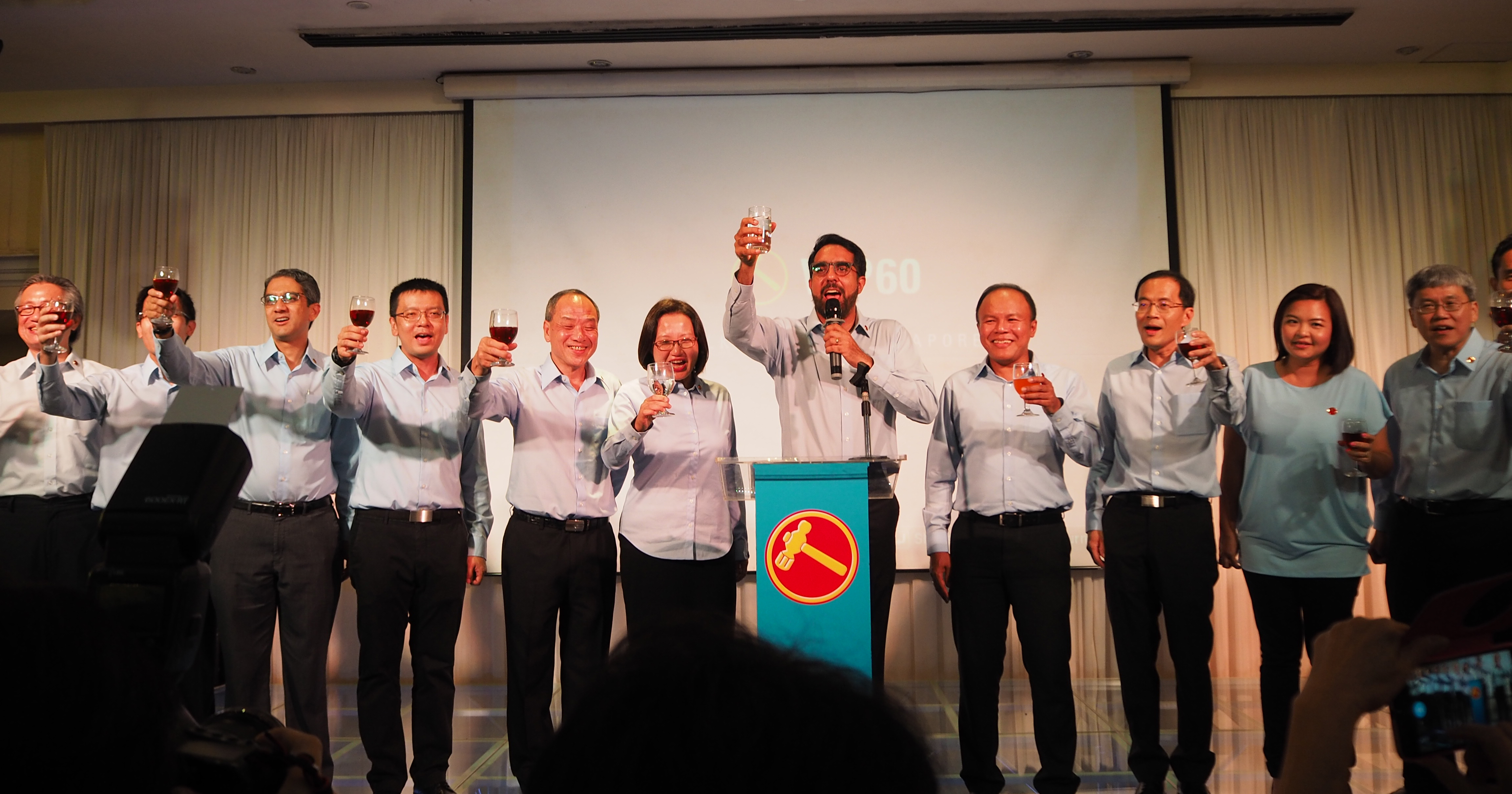Why is Workers' Party called "Workers' Party"?
In 1956, Chief Minister David Marshall resigned after failing to achieve self-governance for Singapore.
He left his political party, the Labour Front in 1957, and set out to form his own political party called the Workers' Party (WP).
Why?
The reason was simple.
The aim of WP was to champion the rights or workers and "eliminate man's exploitation of man".
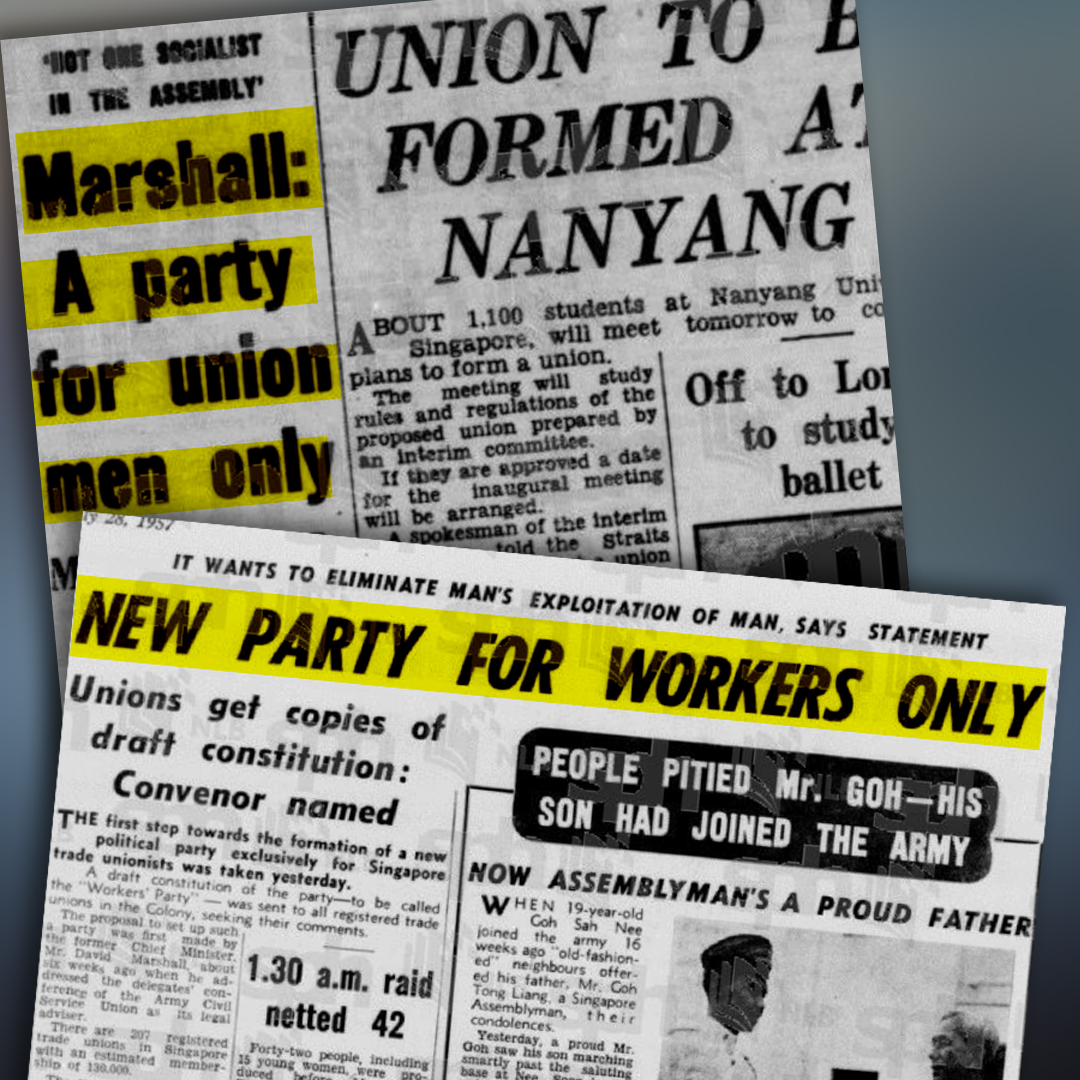
WP championed for better merger terms during pre-independence
One of the biggest things that Marshall championed for Singaporeans was the terms of merger. The agreement for merger had several conditions that disadvantaged Singaporeans, such as not being able to vote in Federal politics.
Subsequently, the rights of Singaporeans in the Federation of Malaysia would be severely curtailed.
Post-independence, WP saw a steady decline, triggered in part by the arrest of two of their top party leaders. Marshall also resigned in 1963, citing disagreements with other party leaders.
Jeyaretnam revives the party
In 1971, the fiery and outspoken J.B Jeyaretnam (his nickname was the Tiger) revived the party with the help of a group of lawyers. Under his leadership, WP thrived on confrontational and rousing rhetoric.
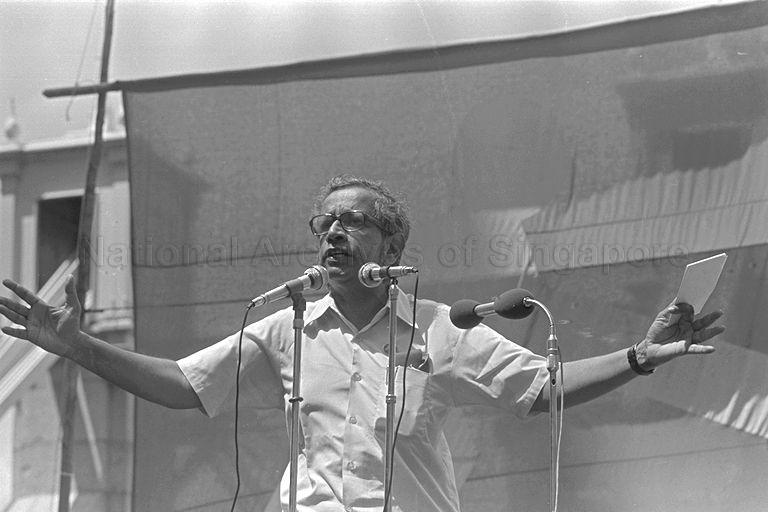 J.B. Jeyaretnam at an election rally in 1976 where he launched a scathing attack on Singapore's immigration problems. Via NAS.
J.B. Jeyaretnam at an election rally in 1976 where he launched a scathing attack on Singapore's immigration problems. Via NAS.
A decade later, he made a breakthrough and finally won the Anson seat in 1981, making him the first opposition Member of Parliament since independence.
In the 1984 general election, Jeyaretnam defended his seat in Anson. Unfortunately, in the same year, he was charged with falsifying party funds.
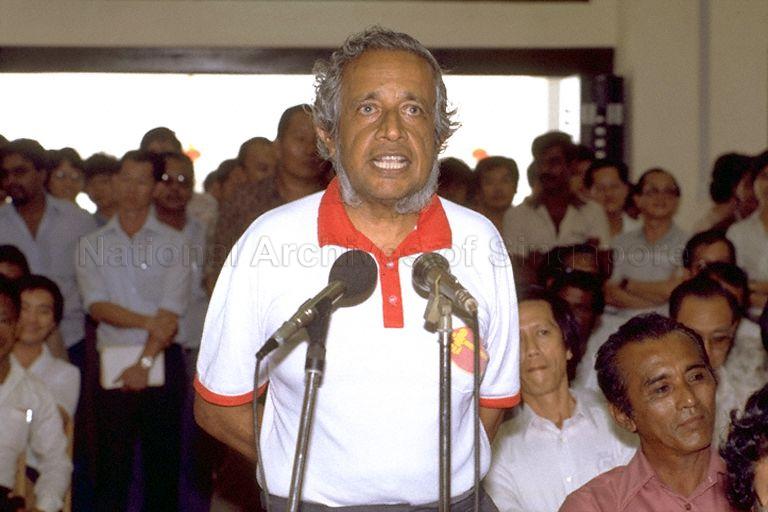 J.B. Jeyaretnam in 1984 during a tour of Anson constituency. Via NAS.
J.B. Jeyaretnam in 1984 during a tour of Anson constituency. Via NAS.
While an original trial found him innocent save for one charge, a subsequent retrial found him guilty of all charges. It effectively disqualified him from Parliament.
In 1987, the WP saw its ranks shrink after a number of party members were arrested by the Internal Security Department (ISD) for allegedly participating in a Marxist conspiracy.
In 1988, WP did not win any constituency in the election but they had the highest percentage of votes won by opposition candidates. Therefore, they could elect a Non-Constituency Member of Parliament (NCMP).
Lee Siew Choh was elected by his party to be Singapore's first NCMP. Again, Lee championed issues that were important to the everyday worker, like living costs and welfare.
Unfortunately, Jeyaretnam's firebrand rhetoric resulted in defamation lawsuits from the PAP leadership.
He was made bankrupt in 2001 and resigned as Secretary-General of the party.
Low Thia Khiang takes over
Jeyaretnam was succeeded by Low who, in a departure from the former's approach, chose to be less adversarial -- a constant feature that has lasted till today.
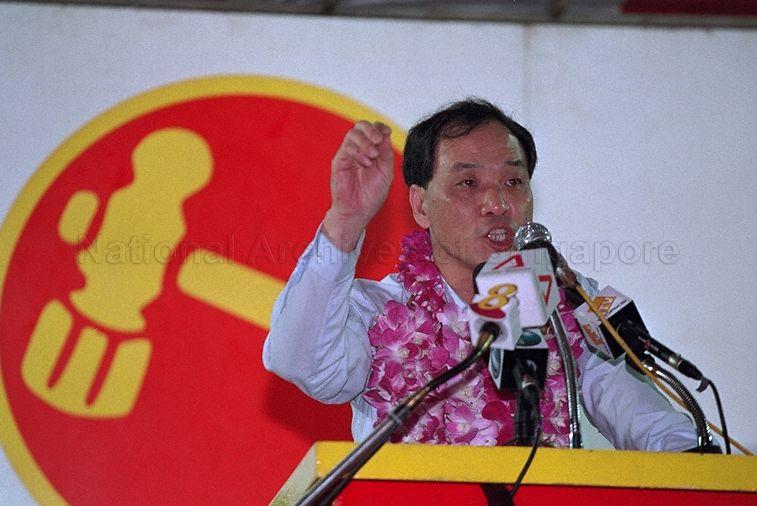 Low at a WP rally in 2001. Via NAS.
Low at a WP rally in 2001. Via NAS.
Low, in designing the 2015 Party Manifesto, for example, promised to have a "rational, responsible, and respectable" opposition which "compels the government to listen to the collective wisdom of the people".
One might say that Low's stance presented a more welcoming image to prospective party candidates.
In tandem with the leadership transfer, WP also embarked on a restructuring of the team by bringing in professionals from different walks of life, including a researcher (James Gomez), a training consultant (Poh Lee Guan), and a law lecturer (Sylvia Lim).
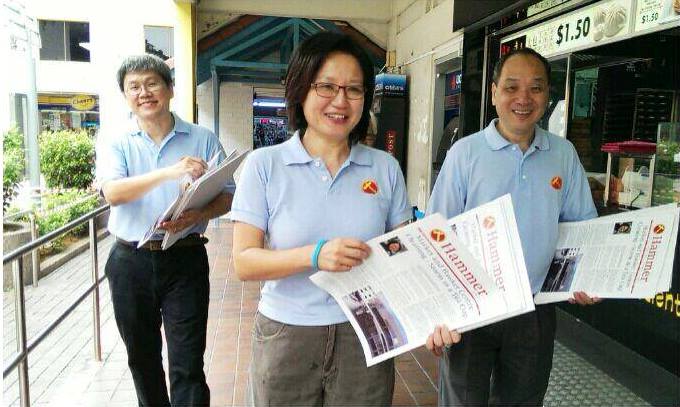 Sylvia Lim.
Sylvia Lim.
In 2011, WP reached another milestone when it became the first opposition party to win a Group Representative Constituency (GRC) -- Aljunied GRC.
[related_story]
The next leadership transfer
After serving for 17 years, it is now time for Low to hand over the reins to his successor.
In November 2017, Low announced his plan to step down at the party's next Central Executive Committee election which will happen on April 8, 2018.
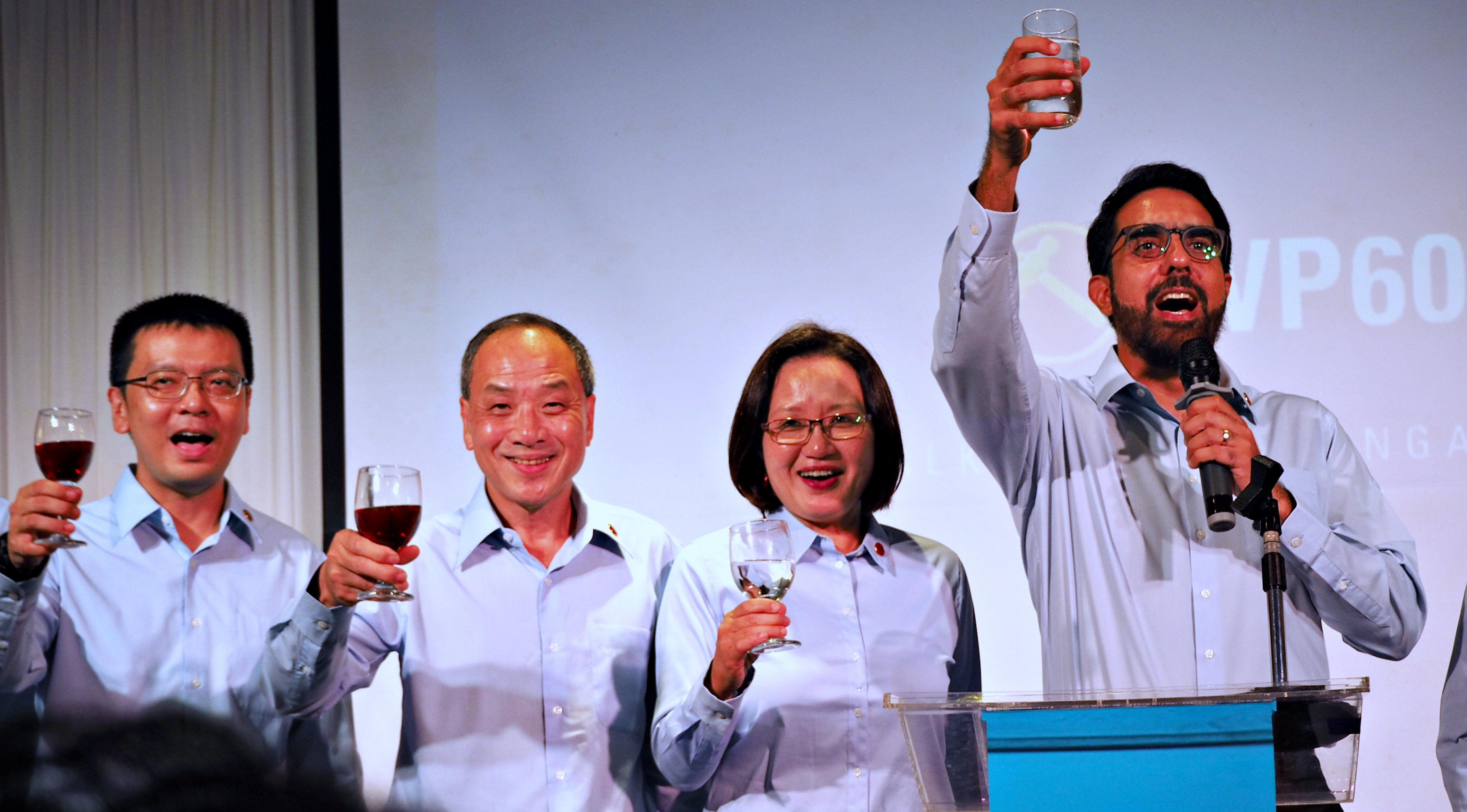 WP at its 60th anniversary celebrations in Nov 2017.
WP at its 60th anniversary celebrations in Nov 2017.
While many names have been thrown up, Low has been adamant that WP is more than any one individual.
"If a party is driven only by strong personality, then the party is very shallow... You need to build a team and an organisation."
- Low, in the WP 60th anniversary commemorative book, Walking With Singapore.
Under a new future leadership, Singaporeans will look to the WP to see if they remain as a rational, responsible, and a compelling opposition force to be reckoned with.
If you like what you read, follow us on Facebook, Instagram, Twitter and Telegram to get the latest updates.
